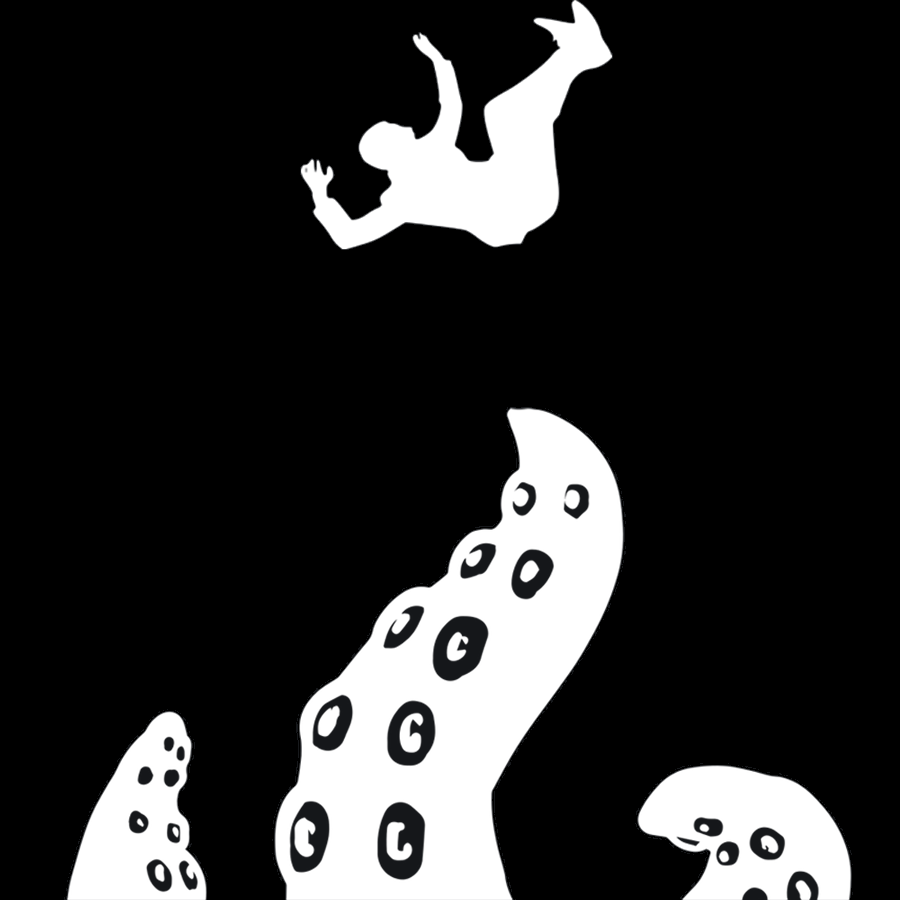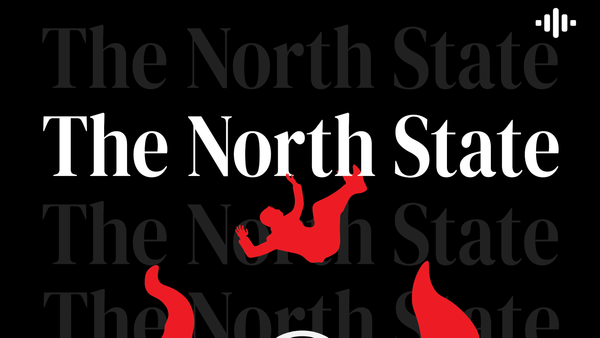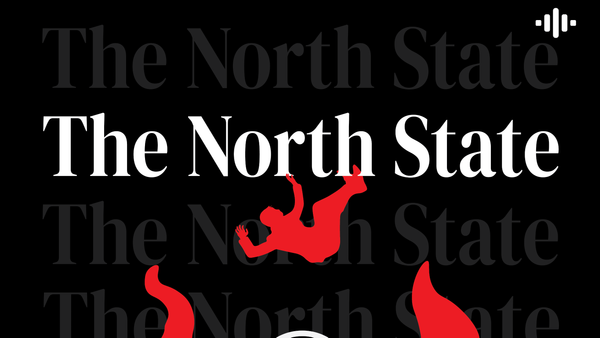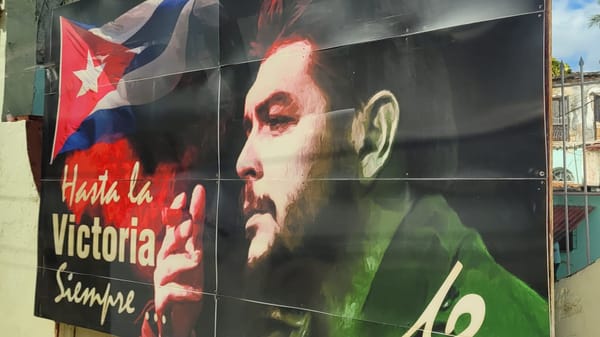On the Abysmal Retrospectives of Trudeau's Tenure
A massive political moment kneecapped by atrocious analyses
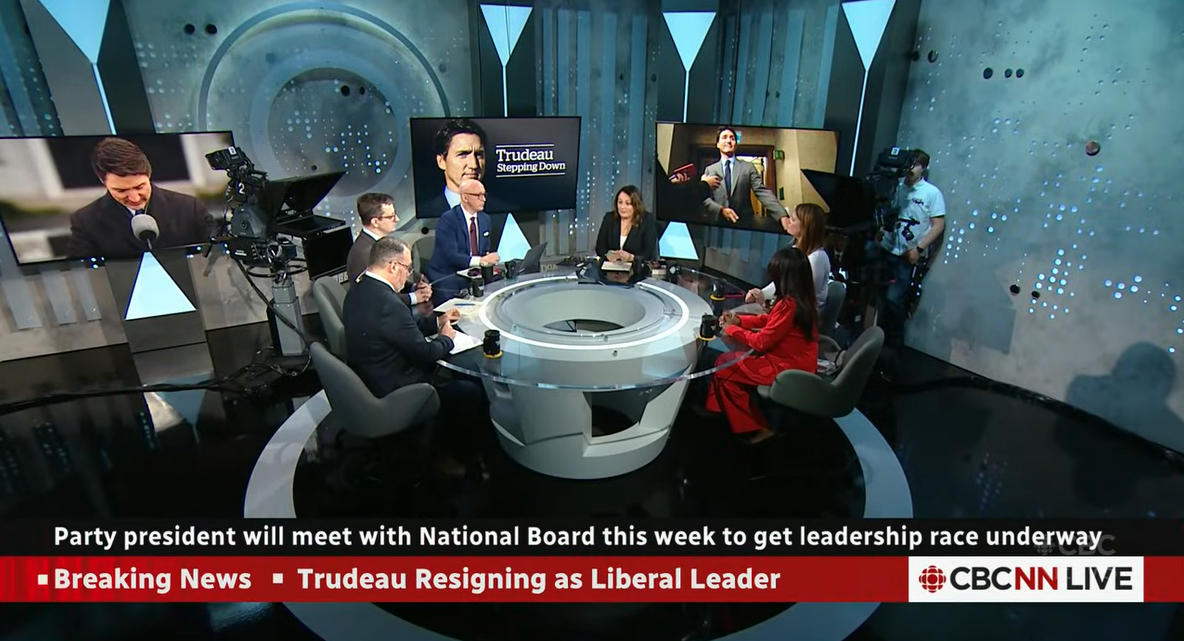
2025 has started off with a political bang.
After much political strife in the federal Liberal party, both public and private, it was reported in multiple outlets on January 5 that Prime Minister Justin Trudeau planned to step down as Liberal Party leader and, by extension, resign as Prime Minister of Canada. When Monday brought a presser announcement, journalism had a frenzy. It quickly became one of those days that, as a news and politics junkie, someone like myself truly lives for. Even with my doubts about the electoral system, it was undeniably a momentous occasion. Unfortunately, legacy news media was not up to the task.
I had thrown on the coverage provided by CBC News, and watched intently for approximately two hours, before leaving it in the background for another few. Over a very long day, comments from David Cochrane, Rosemary Barton, or their panelists left me despondent.
Lowlights include Barton describing possible successors to Trudeau and their political positioning. Mark Carney, perhaps best known for his role in governor of the Bank of Canada and the Bank of England, was described as "progressive but more centrist." Chrystia Freeland, the woman who defends her Nazi grandfather and had zero excuse not to know about the Ukrainian Waffen-SS veteran whom she applauded, was described as "trying to pull away from the left a little bit" referring to the statement announcing her resignation as finance minister. Barton then stated, as CBC News' chief political correspondent, "I don't know where everyone would be situated here," before giving credence to Liberal voices claiming Trudeau had gone too far to the left.
It was at this point I had begun to contemplate the risk/benefit analysis of smacking my head as hard as I could into my coffee table. Pain, yes, but at least this pain would provide a potential modicum of sweet relief. Bringing on Sharan Kaur, a consultant who was a former deputy chief of staff for Bill Morneau during his tenure as finance minister, was another lowpoint. Kaur sang the praises of Carney and Christy Clark, former premier of BC and leader of the then decidedly right-wing BC Liberal party, as great choices for possible successors. A seductive siren call once again hummed from the coffee table.
Written retrospectives of Trudeau's near decade-long tenure as Canada's prime minister soon followed. The Canadian Press published a piece on Trudeau's "mixed global legacy." It pointed to Canadian relations with Ukraine amidst its war with Russia, heightened tensions with China and the latest diplomatic catastrophes with India. Dylan Robertson mentions China's detainment of who we colloquially refer to as "the two Michaels," but omits Canada's detention of Huawei executive Meng Wanzhou, held in Vancouver on a US warrant.
Another article from The Canadian Press highlighted seven key aspects of Trudeau's legacy. Apart from negotiations in NAFTA, every point deals with domestic policy. The piece also highlights "vaccine mandates," immediately before introducing the Trucker Convoy protests. Requirements to be vaccinated against a virus perpetuating a deadly global pandemic being "divisive" were also directly alluded to on CBC News' coverage and an article in CTV News.
Thomas Klassen, writing in The Conversation, detailed Trudeau's "social policy" as his defining mark. He focused on his cabinet's gender equality, the Trucker Convoy protests as well as the government's response to the COVID pandemic. All in all, this piece an inoffensive, if incomplete, look at the broad strokes of his tenure, and probably the best of the bunch.
While the journalism around Trudeau's leadership of the country includes big moments like the SNC-Lavalin scandal, the global pandemic, Donald Trump and his record doing blackface, they completely omit, or distort, key issues.
COVID
Retrospectives and talking points around the (ongoing) pandemic in particular are troubling. Both the CTV News and Canadian Press pieces discussing Trudeau's initial handling of COVID (which now continues unabated) completely distort the Liberal government's vaccine policies. The CTV article only mentions vaccine procurement in passing, and raises CERB one time.
As I wrote in January of 2022, Canada raided the COVAX fund for vaccine doses, robbing poorer countries of doses meant to protect their citizens. These doses would then sit, unused, and expire. Meanwhile, the government clawed back CERB payments from Canadians, while leaving the vast majority of companies who received billions in public funds alone. These were often used to pay executives and shareholders.
In these two examples, Trudeau's policy directly harmed poor Canadians and denizens of other poorer countries. But the pandemic merely serves as context for the "divisive" vaccine mandates that Trudeau implemented. None of Trudeau's other policies receive an eyebrow raise. The fact that hospital workers who refused a COVID vaccine recently lost a case at the Ontario Superior Court of Justice is not mentioned.
Discussion of the pandemic is thus reduced solely to these "vaccine mandates" and how the Convoy was seemingly a 1:1 response to them. There's no further extrapolation of how radicalization gripped the right while they absorbed online conspiracism. No discussion on how Convoy figures succeeded in their political goals once Erin O'Toole was removed as Conservative leader. It's reduced to a natural, and almost understandable, pushback to federal legislation. Regardless of your personal belief, this angle fails to draw any meaningful conclusions of Trudeau's handling of the virus which still continues to disable and kill Canadians as you read this.
Labour
Completely absent from retrospectives of Trudeau's tenure is how his government always undermined the right of federal workers to strike for better working conditions. The latest postal workers strike ended when the Canada Industrial Relations Board (CIRB) ordered a return to work. This was issued shortly after Liberal Labour Minister Steven MacKinnon asked them to do so. This followed a similar situation in November in which dock workers in BC and Montreal were ordered to halt work stoppages... after MacKinnon instructed the CIRB to force the workers back to to the job. MacKinnon also did this to rail workers in August.
Lest one believe this was just a short period of an anti-worker frenzy, the federal government ended a port of Montreal strike in 2021, and a previous CUPW strike in 2018.
Put simply, Trudeau's record of disrupting worker actions and attacking the right to strike has been a consistent feature of his leadership since, at the very least, 2018. The last half of 2024 have seen an astonishing amount of back-to-work legislation implemented by Trudeau's Liberal government.
None of this is included in any retrospectives on his tenure, even with the Canada Post strike in recent memory. Though with the news coverage of that strike, it's not wholly unsurprising. Trudeau's legacy on workers, a class which the vast majority of people in Canada belongs to, isn't even given the respect of being handwaved away.
Palestine
Even considering the abysmal coverage of Trudeau's record on COVID and labour, there was a far more pressing topic completely omitted in the reporting of his resignation. During a 10 hour 33 minute livestream capturing CBC News' special coverage of the announcement, minus the time dedicated to unfiltered statements from Trudeau and other political leaders, the federal government's role in Israel's genocide in Palestine was completely absent.
A search of the words "Palestine," "Gaza," "Israel," or "Netanyahu" in the transcript of CBC News' YouTube capture of the stream revealed zero hits. The same is true of CTV News' nearly 12-hour livestream.
Over the collective time of near 24-hours of coverage, these outlets completely omitted any mention of the ongoing genocide that Trudeau's government supports.
Likewise, none of these retrospectives mentioned that Trudeau has supported Israel through their mass slaughter of Palestinians, as well as their military incursions into Syria and Lebanon.
In an article cohesively outlining how Trudeau supported Israel's atrocities at every step, The Maple's Alex Cosh wrote on how the Canadian government under Trudeau has provided crucial military components, arms exports and political support for the past 15 months. This was in addition to the repeated credence he's lent to Israel's narratives.
"All throughout the genocide," Cosh writes. "The prime minister has shamelessly repeated lie after lie invented by the Israeli government and its stooges in Canada — whether about racist Israeli football hooligans rampaging through Amsterdam or about pro-Palestine protests here."
It's astonishing that the issue was not brought up a single time, even to commend Trudeau on navigating a "difficult subject" or some other useless excuse. News media has segmented the genocide into its own topic, completely separated from any connection to Trudeau or Canada.
Abdicating Responsibility
Admittedly, it's easy to be lost in the political intrigue of it all. Narratives of a once-beloved leader falling from grace due to ego are compelling, but also incorrect. Trudeau's legacy certainly had some positive, if not wholly transformative, impacts. But to raise these alongside his more well-known controversies paints an oversimplified and rosy picture. It portrays Trudeau as a well-meaning man who lost favour with a population that became frustrated with the collective weight of his individual missteps.
Analyses of this nature are a misdirect. In the case of his government's approach to COVID, labour disputes and genocide in Palestine, Trudeau's legacy is horrific. His response to COVID, specifically, has completely abandoned any supports, messaging or policy to curb its spread. Trudeau's repeated moves to force striking workers back on the job has not only crushed a way for federal workers to fight for better conditions, but has normalized the practice so every successive government can do the same. During an ongoing genocide conducted by an ally of Canada, our biggest news outlets don't even bother mentioning it. Housing hasn't even been touched in this piece due to length, but his refusal to tackle the issue absolutely compounded his unpopularity.
Truthfully, the collective failure of these retrospectives follows a pattern in reporting. But this is one of the first times many Canadians will be politically aware while there is a changeover in prime ministers. Trudeau took office nearly 10 years ago, and yet no substantial critique of his overall governmental approach has been levied in legacy media. Instead we get a mish-mash of various personal failings and a hyper-focus on the political theatre within the Liberal party these past few months.
Perhaps it's enough to pander to those who value the opinions of consultants and party insiders, but it provides little for the rest of us. At least there's always the coffee table.
